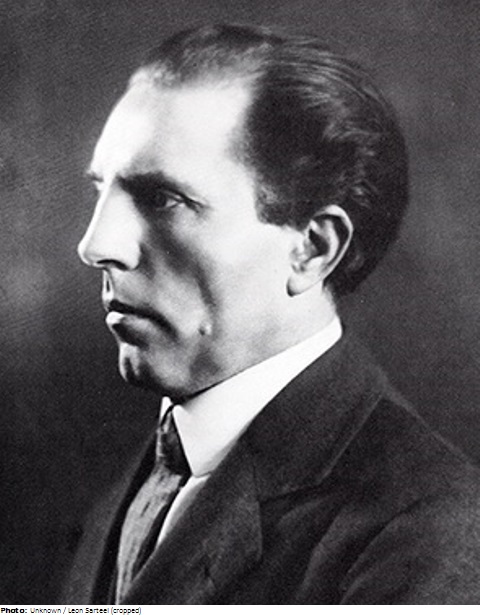Belgian sculptor Leon Sarteel lived and worked in Ghent, Belgium. He started as an apprentice at a woodcarver’s studio and continued to work for a woodcarver to add to the family income. For 10 years he attended evening and Sunday classes at the Ghent Royal Academy of Fine Arts until he received an award for sculpturing in 1908, which allowed him to work without financial pressure for some time. In 1929, he built his own Art Déco house, which also hosted his workshop. He mainly created bronze, marble, wood and gypsum sculptures and statues in Art Déco style. Sarteel changed styles from romantic realism to symbolism. In 1936, he took part in the Venezia Biennale and had various solo exhibitions in Belgium. Since he never took a job as an art teacher, he had to rely on the income from selling his works, which was difficult just prior and during World War II. His house with the atelier was restored by his son in 2001 and became a museum which is regularly visited. At 59, he died of a heart attack. Sarteel was very interested in sports and was active in sports himself. The bronze sculpture Vers la vie was previously exhibited at the Triennial Salon in Ghent. Géo Verbanck created a sculpture with the same title just one year after the Olympics.

 Belgium
Belgium BEL
BEL